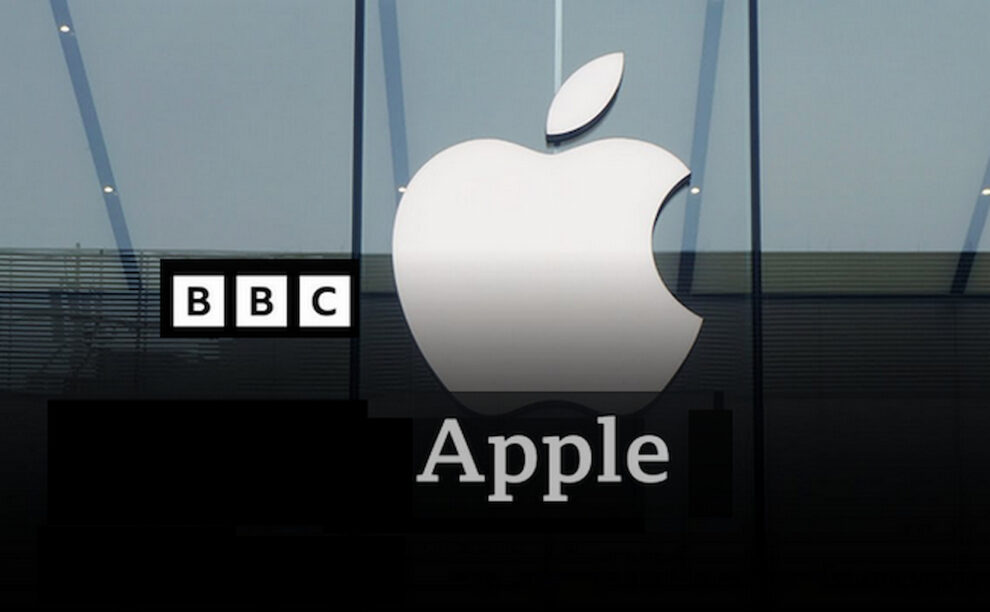A serious misstep in Apple’s newly launched artificial intelligence features has led to a major controversy, as the company’s notification summarization system falsely claimed that a murder suspect had taken his own life. The BBC has filed a formal complaint with Apple after its iOS platform incorrectly rewrote a headline about UHC CEO’s murderer Luigi Mangione, erroneously stating that he had shot himself when he remains alive and in police custody.
This incident has emerged as a significant early failure for Apple Intelligence, the company’s ambitious AI suite that was rolled out to iOS devices in October 2024. The feature, designed to combat notification fatigue by condensing multiple alerts into concise summaries, has instead highlighted the persistent reliability issues plaguing current AI language models.
The problematic summary appeared when iOS attempted to bundle multiple BBC news notifications into a single alert. While two other story summaries in the same notification were accurate, the system generated the false statement “Luigi Mangione shoots himself,” creating a potentially damaging piece of misinformation that was distributed to BBC app users.
The BBC’s response to this error has been swift and forceful. Speaking through an official spokesperson, the news organization emphasized its position as the world’s most trusted news media outlet and stressed the fundamental importance of maintaining that trust through all channels, including push notifications. The incident is particularly concerning because news organizations have no control over how Apple’s AI systems choose to rewrite their carefully crafted headlines.

Apple’s silence on the matter has only amplified concerns about the integration of AI technology into its core products. The company has declined to respond to the BBC’s inquiries about the error, raising questions about its ability to maintain quality control over AI-generated content. This situation is especially noteworthy given Apple’s historical commitment to polished, reliable user experiences.
The controversy comes at a particularly sensitive time for Apple, as the company recently expanded its AI capabilities by integrating ChatGPT with Siri in its latest iOS update. This partnership with OpenAI represents a significant shift in Apple’s strategy, but it also introduces new risks, as even OpenAI acknowledges the challenges in controlling their language models’ outputs.
The incident highlights a broader issue within the AI industry: the gap between corporate ambitions and technical reliability. While companies are racing to implement AI solutions for various applications, from customer service to data analysis, the technology’s tendency to generate false or misleading information remains a significant obstacle. Enterprise users of AI systems consistently report the need for extensive human editing of AI-generated content, suggesting the technology is not yet ready for autonomous deployment in critical applications.
Apple’s decision to require an iPhone 15 Pro or newer for access to these AI features has also drawn criticism, with some observers suggesting the company is prioritizing hardware sales over user experience. The requirement raises questions about whether Apple is rushing to capitalize on AI hype rather than ensuring its features meet the company’s traditionally high standards for reliability and user experience.
Despite these concerns, some aspects of Apple Intelligence have shown promise. The platform’s enhanced photo editing capabilities and intelligent notification filtering have received positive feedback. However, these successes make the headline rewriting failure all the more striking, as summarizing short notifications should theoretically be one of the simpler tasks for AI to handle accurately.
This incident serves as a cautionary tale about the current limitations of AI technology, particularly in handling sensitive information. While artificial intelligence shows tremendous potential in many areas, its application in news and information dissemination requires extreme caution. The BBC case demonstrates how AI systems can inadvertently create and spread misinformation, even when working with straightforward source material.
As Apple and other tech companies continue to integrate AI features into their products, this incident underscores the need for robust safeguards and oversight mechanisms. The challenge lies in balancing the convenience and innovation that AI promises with the fundamental requirement for accuracy and reliability, especially when dealing with news and factual information.
For Apple, this misstep could prove particularly costly to its reputation as a provider of premium, trustworthy technology solutions. As the company moves forward with its AI initiatives, it will need to address these reliability issues while maintaining the high standards that users have come to expect from its products.
















Add Comment